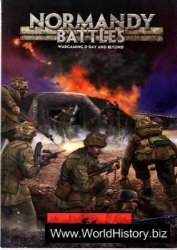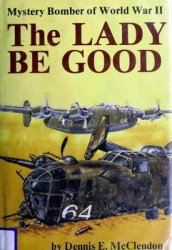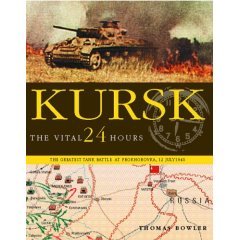In November 1943, Stalin, Roosevelt, and Churchill, the
leaders of the Grand Alliance, met at Tehran (the capital
of Iran) to decide the future course of the war. Their major
strategic decision involved approval for an American-
British invasion of the Continent through France, which
they scheduled for the spring of 1944. The acceptance of
this plan had important consequences. It meant that Soviet
and British-American forces would meet in defeated
Germany along a north-south dividing line and that eastern
Europe would most likely be liberated by Soviet
forces. The Allies also agreed to a partition of postwar
Germany until denazification could take place. Roosevelt
privately assured Stalin that Soviet borders in Europe
would be moved westward to compensate for the loss of
territories belonging to the old Russian Empire after
World War I. Poland would receive lands in eastern Germany
to make up for territory lost in the east to the Soviet
Union.
In February 1945, the three Allied leaders met once
more at Yalta, on the Crimean peninsula of the Soviet
Union. Since the defeat of Germany was a foregone conclusion,
much of the attention focused on the war in
the Pacific. Roosevelt sought Soviet military help against
Japan. Development of the atomic bomb was not yet
assured, and U.S. military planners feared the possibility
of heavy casualties in amphibious assaults on the Japanese
home islands. Roosevelt therefore agreed to Stalin’s
price for military assistance against Japan: possession of
Sakhalin and the Kurile Islands, as well as two warmwater
ports and railroad rights in Manchuria.
The creation of the United Nations was a major U.S.
concern at Yalta. Roosevelt hoped to ensure the participation
of the Big Three Powers in a postwar international
organization before difficult issues divided them into hostile
camps. After a number of compromises, both Churchill
and Stalin accepted Roosevelt’s plans for the United
Nations organization and set the first meeting for San
Francisco in April 1945.
The issues of Germany and eastern Europe were
treated less decisively. The Big Three reaffirmed that
Germany must surrender unconditionally and created
four occupation zones. German reparations were set at
$20 billion. A compromise was also worked out in regard
to Poland. Stalin agreed to free elections in the future to
determine a new government. But the issue of free elections
in eastern Europe would ultimately cause a serious
rift between the Soviets and the Americans. The Allied
leaders agreed on an ambiguous statement that eastern
European governments would be freely elected but were
also supposed to be friendly to the Soviet Union. This
attempt to reconcile the irreconcilable was doomed to
failure.
Even before the next conference at Potsdam, Germany,
took place in July 1945, Western relations with the
Soviets had begun to deteriorate rapidly. The Grand Alliance
had been one of necessity in which ideological incompatibility
had been subordinated to the pragmatic
concerns of the war. The Allied Powers’ only common
aim was the defeat of Nazism. Once this aim had been all
but accomplished, the many differences that antagonized
East-West relations came to the surface.
The Potsdam conference of July 1945, the last Allied
conference of World War II, consequently began under a
cloud of mistrust. Roosevelt had died on April 12 and had
been succeeded as president by Harry Truman. During
the conference, Truman received word that the atomic
bomb had been successfully tested. Some historians have
argued that this knowledge stiffened Truman’s resolve
against the Soviets. Whatever the reasons, there was a
new coldness in the relations between the Soviets and
the Americans. At Potsdam, Truman demanded free
elections throughout eastern Europe. Stalin responded:
“A freely elected government in any of these East European
countries would be anti-Soviet, and that we cannot
allow.” 6 After a bitterly fought and devastating war,
Stalin sought absolute military security, which in his view
could be ensured only by the presence of Communist
states in eastern Europe. Free elections might result in
governments hostile to the Soviet Union. By the middle
of 1945, only an invasion by Western forces could undo
developments in eastern Europe, and in the immediate
aftermath of the world’s most destructive conflict, few
people favored such a policy. But the stage was set for a
new confrontation, this time between the two major victors
of World War II.
|
|
||||||||
|
Www.WorldHistory.Biz
Sundries
 Contact Contact
|
 
10-08-2015, 17:09
AFTERMATH OF THE WAR
  |
|||||||
 |
 |
 |
 |
|||||
|
||||||||

 World History
World History





